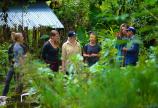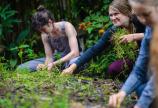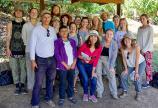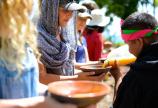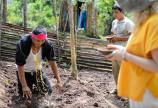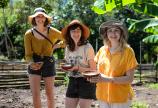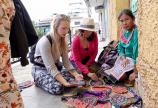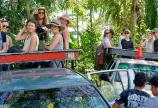Peru field school experience teaches ecology, economy and spirituality
- Anne MacLaurin
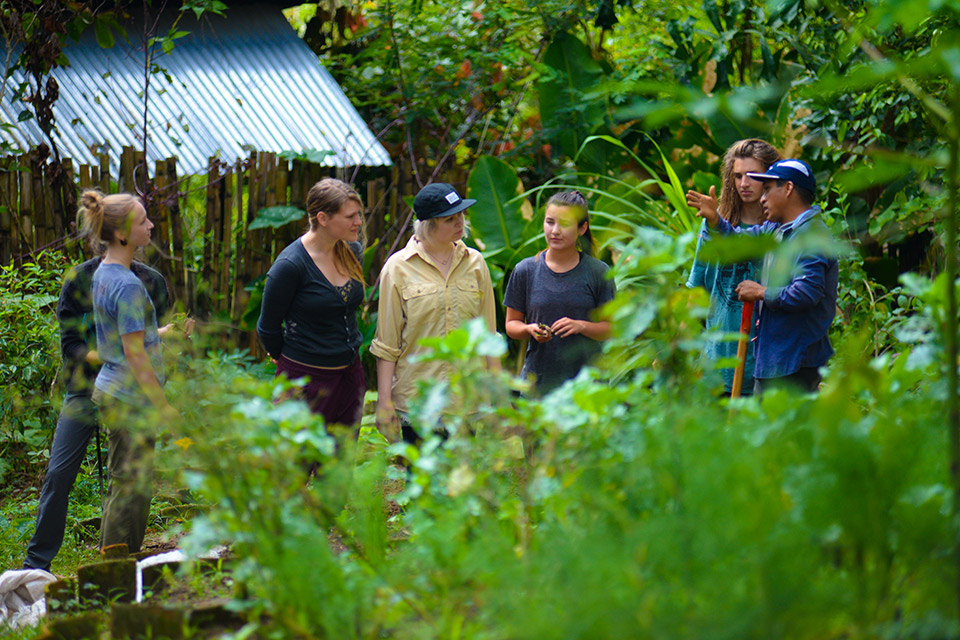
Fertile soil: decolonization and the fabled "black earth" of the Amazon
Walking along the foothills of the northern Peruvian Amazon, 14 UVic environmental studies students—along with instructors Ana María Peredo and Kate Turner and mentors Murdith McLean and Frederique Apffel-Marglin—embarked on a unique learning experience this spring that wove together ecology, economy and spirituality in an Indigenous setting.
During the two-week field school, the students learned first-hand from local communities about sustainable economies and agricultural biodiversity involving relationships with the spirits of the land. In collaboration with the Sachamama Centre for Biocultural Regeneration, a non-profit organization focused on education and research, the students had an opportunity to learn about ancient soil techniques and Indigenous food and economic systems.
I really wanted students to be able to see how ecology, economics and spirituality are deeply wound up together in Indigenous communities and to think how Indigenous decolonization can work not only in the Amazon but also at home here in Canada.
—Professor Ana María Peredo
UVic student, Michael Graeme, clearly got the message. The field course, he said, is “rooted in an examination of the challenges and opportunities of decolonization efforts in Peru, leading us to relate our learning back to our experiences in Canada with Indigenous history and reconciliation.”
Graeme wrote blogs and shot video during his almost three weeks in Lamas, Peru capturing many student projects and experiences as they learned how, in one instance, to make biochar—an ancient component of soil that attracts nutrients and makes soil incredibly fertile for thousands of years.
“Ideally, the creation of biochar could be adapted to fit the region in which it is being created and added to soils in farmland or home gardens to maintain a healthy land and contribute to fighting climate change,” says third year environmental studies and geography student Nicole Cymerys.
“I was surprised to find out that the biochar and soil in the region, known as Amazonian Dark Earth, stays fertile for thousands of years,” added Cymerys.
At the Sachamama Centre, Cymerys explains they “learned how to create biochar by putting the biomass (coconut husks) into ovens to cook at a high heat with no oxygen, while mixing it with other components of the soil to make a soil bed.”
Other projects, such as Josephine Simpson’s, investigated local farmers’ experiences of climate change and the implications for traditional agriculture.
“Climate change is already affecting farmers,” says Simpson, “it shows that we have to think about it now, not just as something that will happen in the future.”
Simpson said there wasn't a single person she interviewed who didn't already feel some impact of climate change.
Peredo and Turner were impressed with the careful attention the students paid their projects and their openness to new experiences.
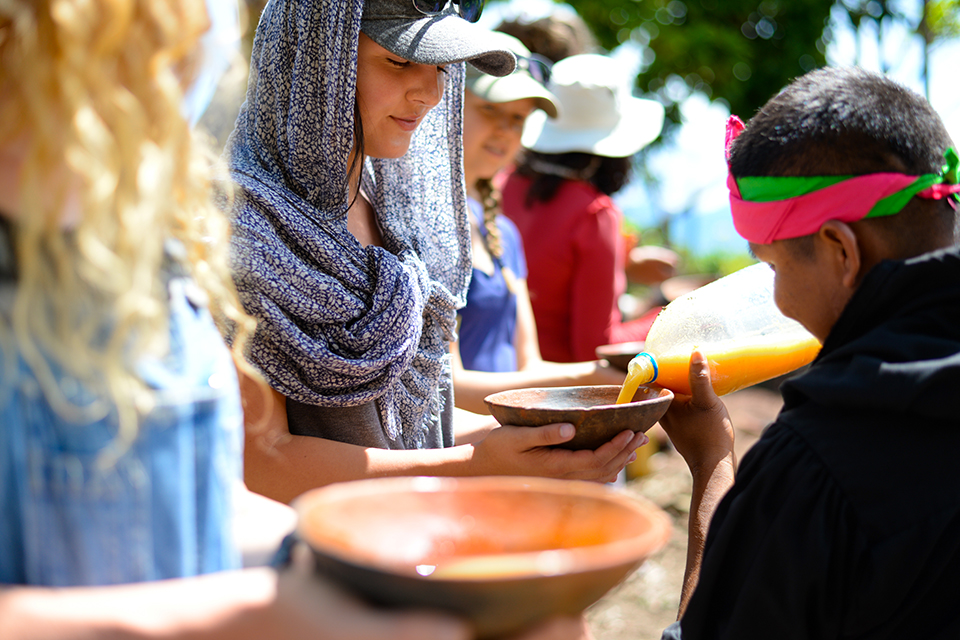
“I think that one of the most powerful aspects of the course was that every day was full of small and large learnings for the students, that challenged assumptions and gave insight into different ways of life,” says Turner.
As the students adjusted to the Amazon they found a new appreciation for Indigenous cultures and economies and gained ideas as to how Indigenous decolonization can work in the Amazon and at home in Canada.
As Graeme notes in his blog, “this UVic field school was a hands-on, heart-opening and thought-provoking” experience—not soon forgotten.

